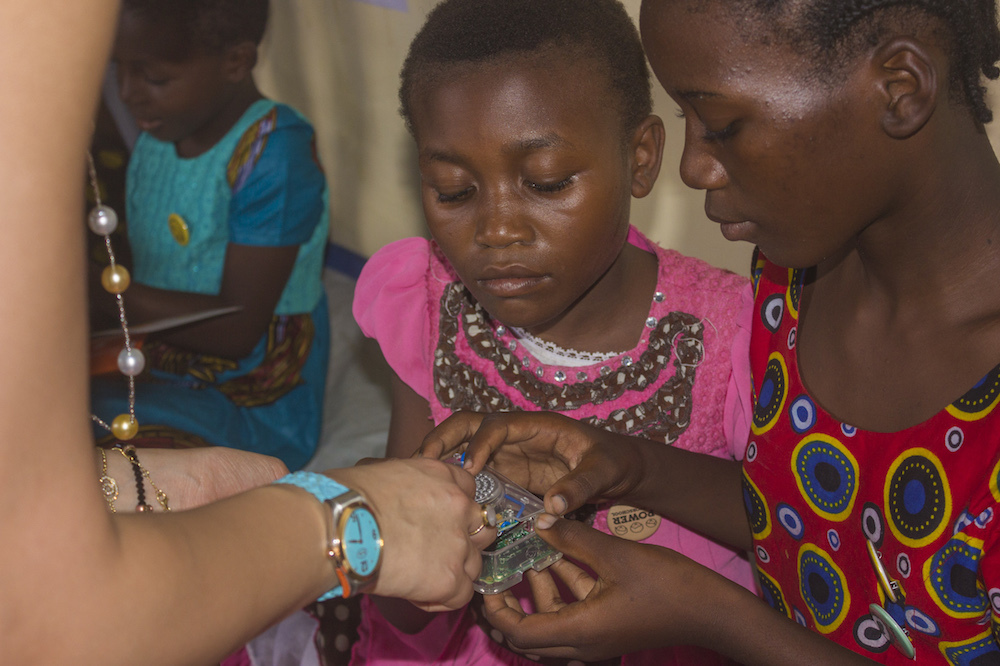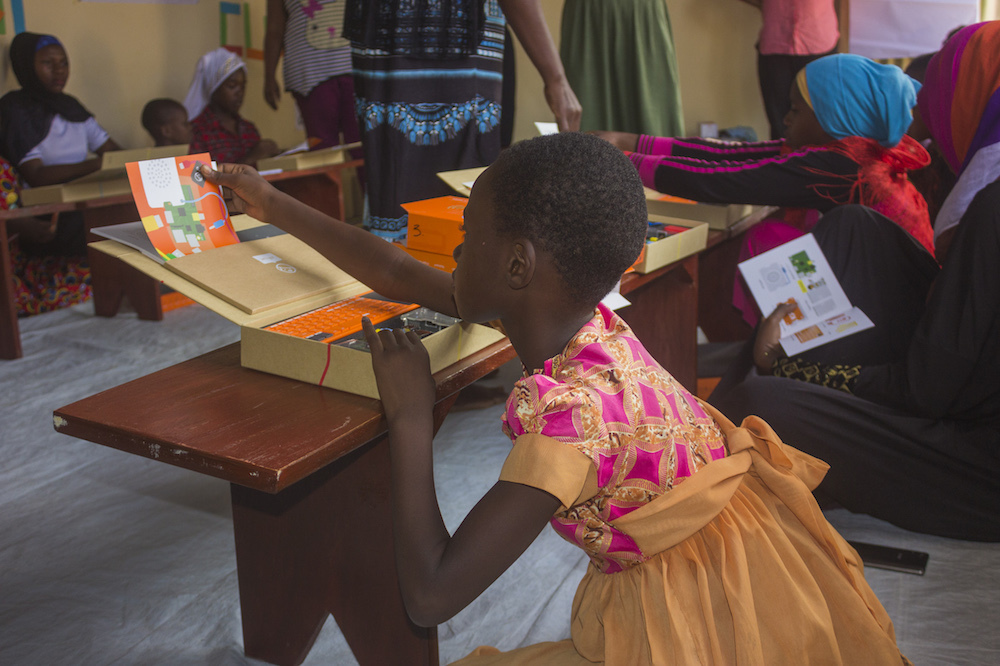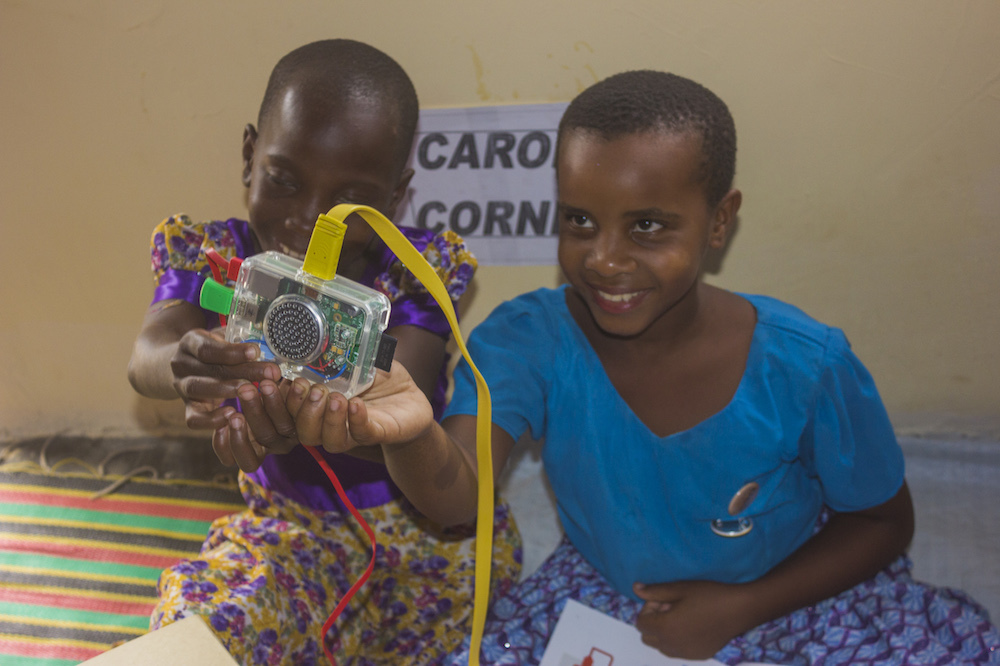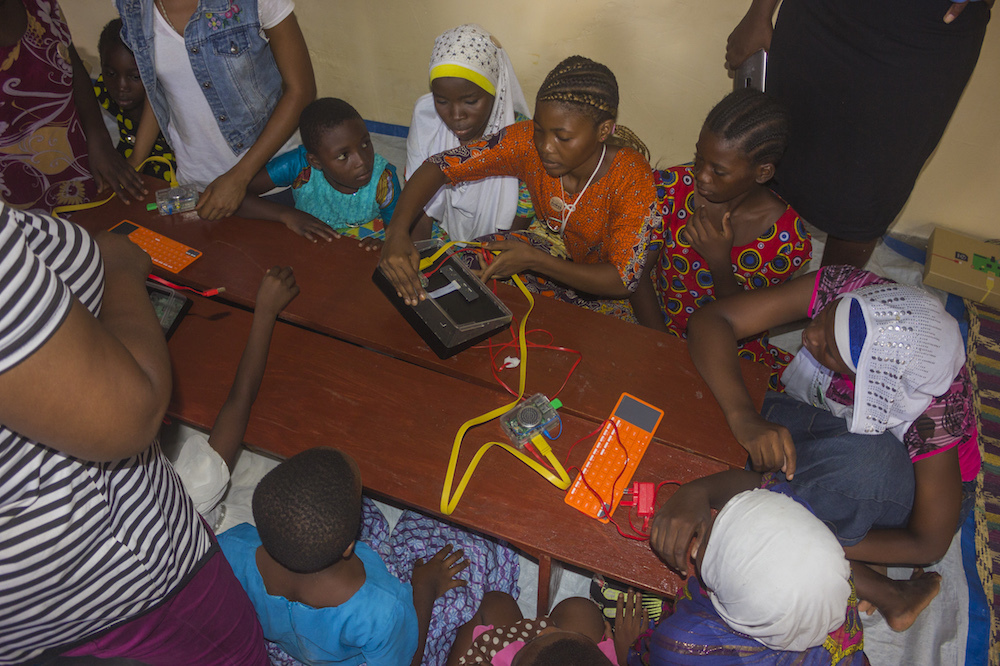
Girls to learn technology skills at new Code Clubs in Tanzania
Barriers to education, Girls' education, International Women's Day, Teachers and learning, Technology and education
The clubs - which provide a safe space for girls to learn coding and other skills - are being launched by Theirworld today on International Women's Day.
Vulnerable girls and young women in Tanzania are being given a unique chance to learn vital coding and technology skills in a safe space through Theirworld’s Code Clubs project.
The clubs are being launched today on International Women’s Day in partnership with the organisation BRAC Maendeleo Tanzania.
Code Clubs provide a safe space for girls to learn coding, foster their creative thinking and increase important business and health-related knowledge and skills to help transform their lives.
The clubs are located in the Temeke district of Dar es Salaam, where many girls have dropped out of school and the risk of teenage pregnancy is high.
Bisma Mowjee Paul, Project Manager at Theirworld, said: “With a safe space to learn and play, a mentor to inspire and access to technology to be able to explore, create and code, we can increase learning opportunities and empower girls to fulfil their potential.
“Every girl should have the opportunity to go to school, learn, grow, and have a future they choose.
“At Theirworld we know that investing in a girl has social and economic returns that go beyond her, extending not only to her family and future children, but also to her community.
“We don’t shy away from challenges and are prepared to tackle the big problems that stop children from learning.”

Theirworld has already launched Code Clubs in Kenya, Uganda and Nigeria. Despite thousands of jobs being created in the Science, Technology, Engineering and Mathematics (STEM) industries across Africa, gender discrimination and lack of access to education and technology means girls are often kept out of the work force and unable to break the cycle of poverty.
On average, women make up less than 30% of the people working in STEM.
Girls and young women aged 11 to 25 will learn how to build a Kano computer, make games and artworks and express themselves with code.
Also integrated into the curriculum are concepts of health and nutrition, where girls reflect on their daily routines and the importance of hygiene, exercise and nutrition using online tools.
The older girls also learn how to create their own websites using HTML, CSS and Jav,a as well as gaining skills for future employment and business. All the girls are provided with a healthy snack.
Aisha is a 19-year-old girl who wants to be a fashion designer. Se normally spends her days at home doing housework – so she was excited to see the new Code Club.

She said she wants to learn how to send e-mails and messages online, adding: “It is important for girls to learn about computers and access technology because later on in life they can be more independent.”.
Amina Shaaban, Deputy Manager for Education at BRAC, said: “The opportunities that coding will create for the girls in these communities is immeasurable. Most, if not all, have never even seen a computer before.
“The coding clubs will have a much broader impact in the girls’ lives that goes beyond just coding. An understanding of computer science is becoming increasingly essential in today’s world.

“Computational thinking fosters critical thinking skills. Girls will be able to have a logical thought process, ability to spot mistakes and willingness to solve a problem that comes from learning to code.
“Africa is crying out for young women with STEM skills and knowledge – and these Code Clubs will provide these young girls a whole new window of opportunity and interest that they never had a chance to explore.”
Code Clubs run once a week in six-month cycles. Girls will be taught a bespoke programme of online coding content by a trained teacher and given access to numeracy, literacy, art and music to support their formal education.
The Kano computer kits used in the clubs are low-cost, easily transportable, can be rebuilt multiple times and are highly applicable in countries where connectivity is low.
The Code Clubs in Tanzania are kindly supported by Johnson & Johnson.
BRAC is a development organisation dedicated to alleviating poverty by empowering the poor, operating across 11 countries. It started working in Tanzania in 2006 and has reached more than 2.6 million people through programmes in microfinance, small enterprises development, education, agriculture, poultry, livestock and empowerment and livelihood for adolescents.

Kano – the tech to power the hubs – is a DIY computer and coding kit for all ages. It is a simple, human way to make and play with technology to build a computer, make games, music, and artworks, and express yourself with code.
Codecademy – the accredited course – will give girls an accredited skills base and the know-how in online learning. Codecademy rethinks education from the bottom up and creates an engaging educational experience.
Read about a mentor from BRAC Tanzania’s Empowerment and Livelihood for Adolescents Programme.
More news

